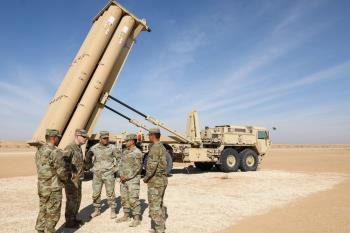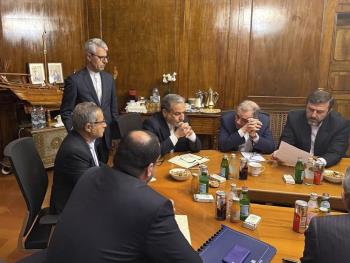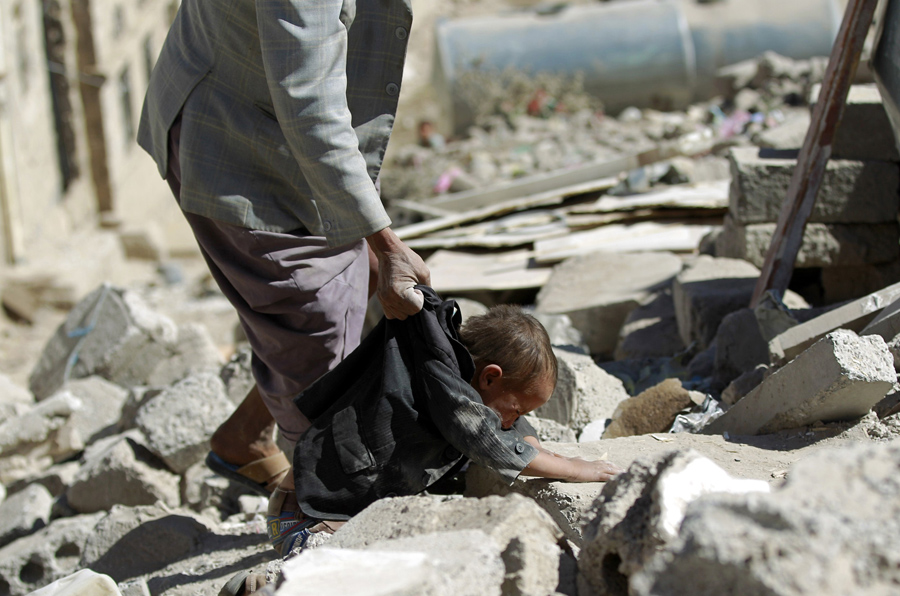Alwaght- A bipartisan committee in the US House of Representatives introduced a resolution on 27 September which, if passed, would order American army removed from Saudi-led coalition's aggression on Yemen.
Citing human rights concerns, the committee has called for the US military to stop lending crucial support to the Saudi Arabia brutal aggression on neighboring Yemeni nation that has claimed lives of over 13,000 civilians and has displace millions more.
The primary way the US has supported the Saudi-led coalition's incursion has been refueling missions flown by the US Air Force that allow their Saudi counterparts to continue a campaign of airstrikes in their southern neighbor. The new bill, House Congressional Resolution 81, would bar the US military from participating in any military action in Yemen aggression except operations against al-Qaeda in the Arabian Peninsula (AQAP) terrorist group.
Resolution 81 "in no way restricts our military counter-terrorism efforts in Yemen," Ro Khanna (D-Calif.), who introduced the bill, told Military.com. "All the bill basically does is say we should not be assisting Saudi Arabia in Yemen."
The bill has attracted 30 House co-sponsors, including Mark Pocan (D-Wisconsin), as well as prominent Republicans such as Walter Jones (R-North Carolina) and Thomas Massie (R-Kentucky), Khanna's co-sponsor. Congress has not authorized any US military action in Yemen against anyone but AQAP.
Military.com asked if the bill could damage the US' relationship with Riyadh or other members of the Saudi coalition, such as their main partner the United Arab Emirates (UAE). Khanna denied such a possibility. "They need us far more than we need them," he said. "They're not going to tell the United States what to do."
"What my concern is, is that we need to reorient our foreign policy and not have an alliance with Saudi Arabia. But I have great admiration and great confidence in our military [in counter-terrorism operations], and I think our military can achieve those goals against al-Qaeda in Yemen."
He also argued that the US did not really care who won war between Saudi puppet Abed Rabbuh Mansur Hadi forces and Ansarullah resistance movement, also known as Houthis. "We don't have any stake, in my view, in whether the Houthis are in power in Yemen — it's not in our national security interest," Khanna said.
These atrocities are an "obscene reality occurring in the Middle East's poorest country, Yemen, at the hands of the region's richest, Saudi Arabia, with unyielding United States military support that Congress has not authorized and that therefore violates the Constitution," Khanna wrote alongside Jones and Pocan in a New York Times op-ed that went up on Tuesday. "We believe that the American people, if presented with the facts of this conflict, will oppose the use of their tax dollars to bomb and starve civilians."
Dan DePetris, a fellow at Defense Priorities and a Middle East and foreign policy analyst at Wikistrat Inc., also told military.com that the US' role in Yemen's aggression is only complicating how that country can sustain itself in the future -- and how the US deals with terrorist organizations.
DePetris also suggested, "Indiscriminate airstrikes on civilian targets" and Saudi regime's "obsession" with the Ansarullah movement are allowing terrorists groups "to breathe a little easier".
"AQAP has capitalized on the violence by recruiting those who have lost friends and relatives in the bombing," he said.
"Continuing the provision of aid to the Saudis in their campaign against the Houthis serves no vital US national security interest," he said.
DePetris went on to rebuke American leaders double standards toward Yemen aggression, saying "US officials have publicly stated that no party in this conflict is strong enough to win militarily. And yet Washington's actions do not match those words. On one side of our mouth, we talk about a negotiated resolution to the war. But on the other side, we continue to reinforce the Arab coalition's operations."
DePetris added, "It is completely counterproductive and no way to proactively work toward an inclusive diplomatic process."



























